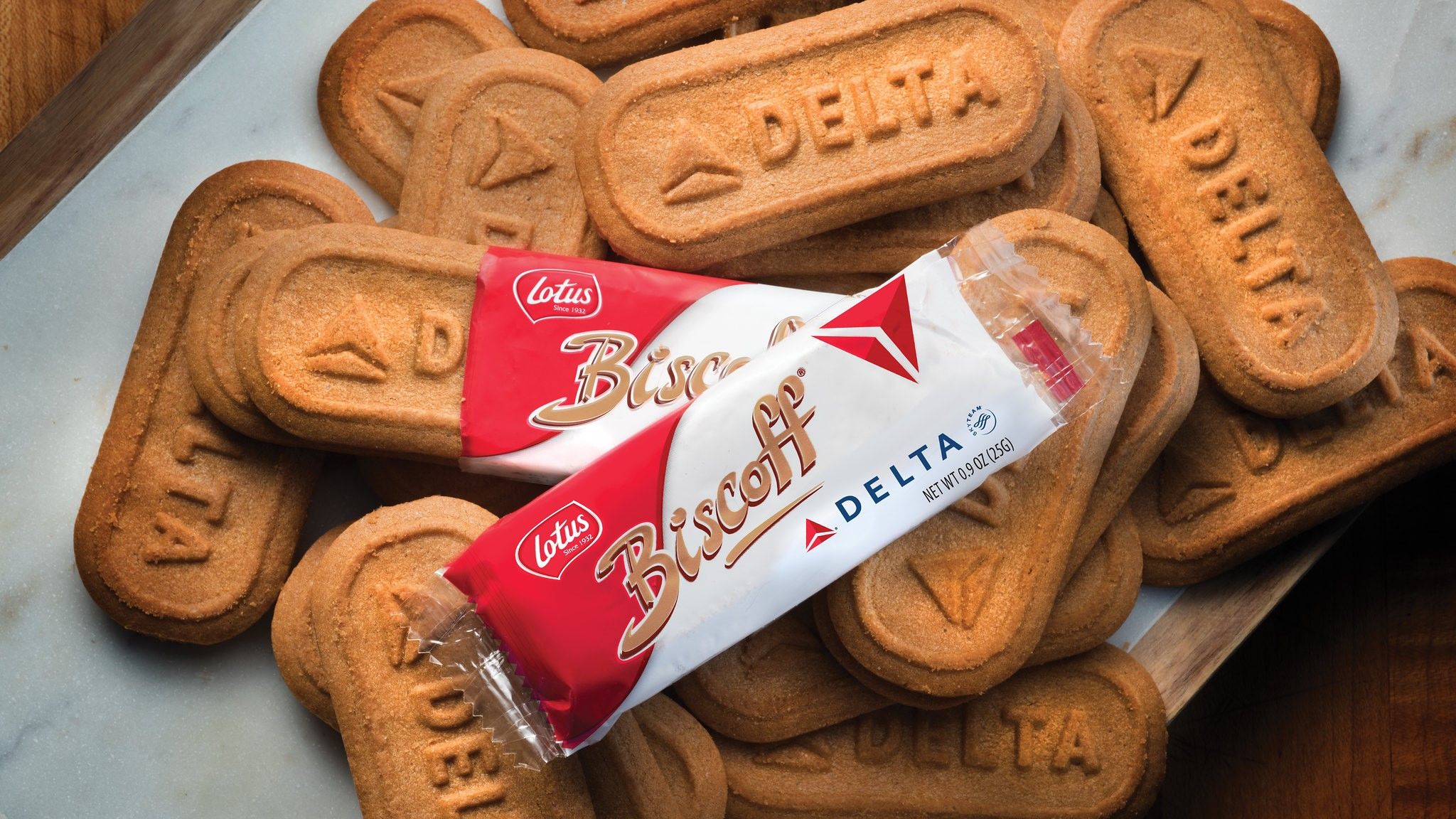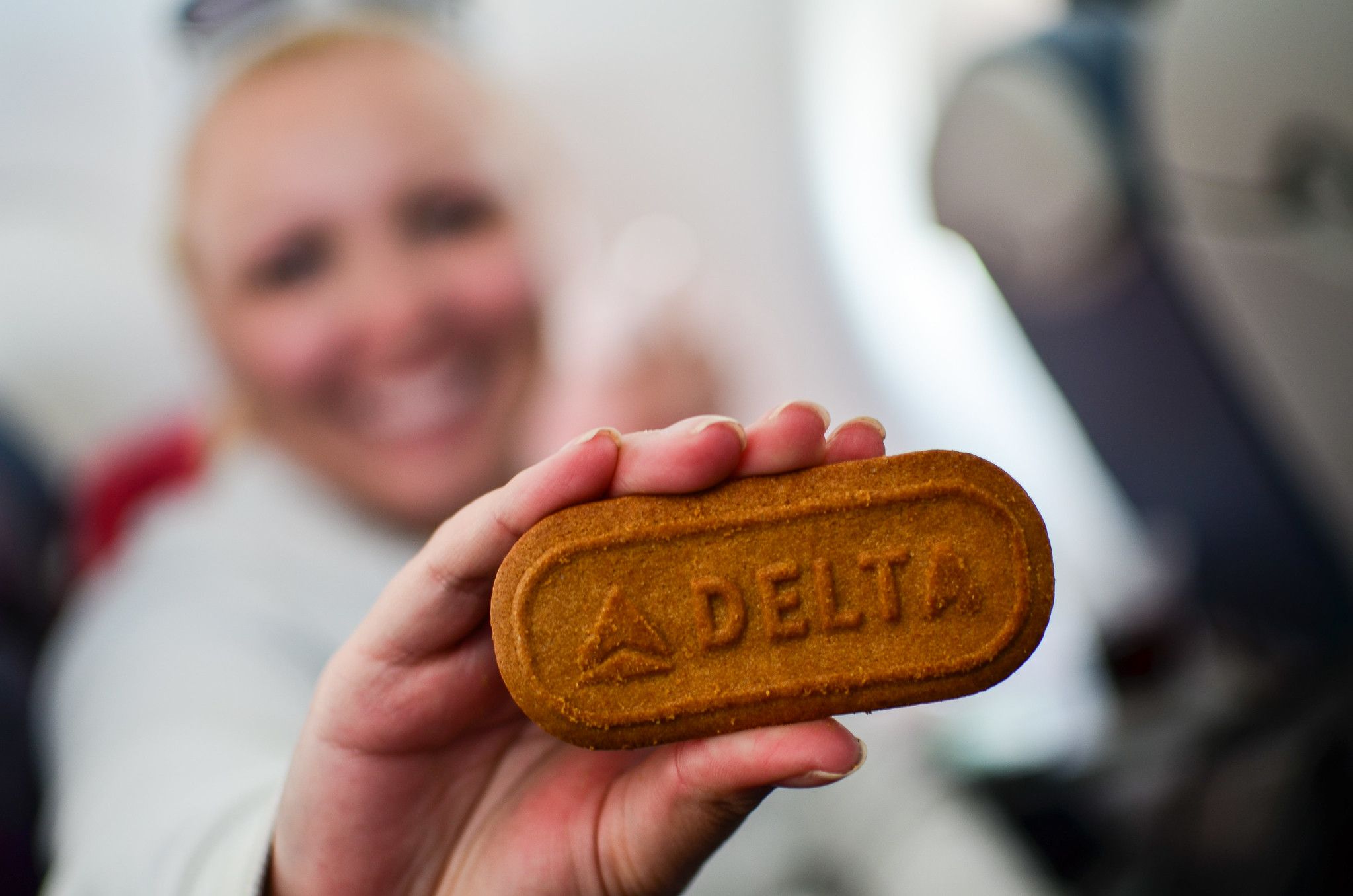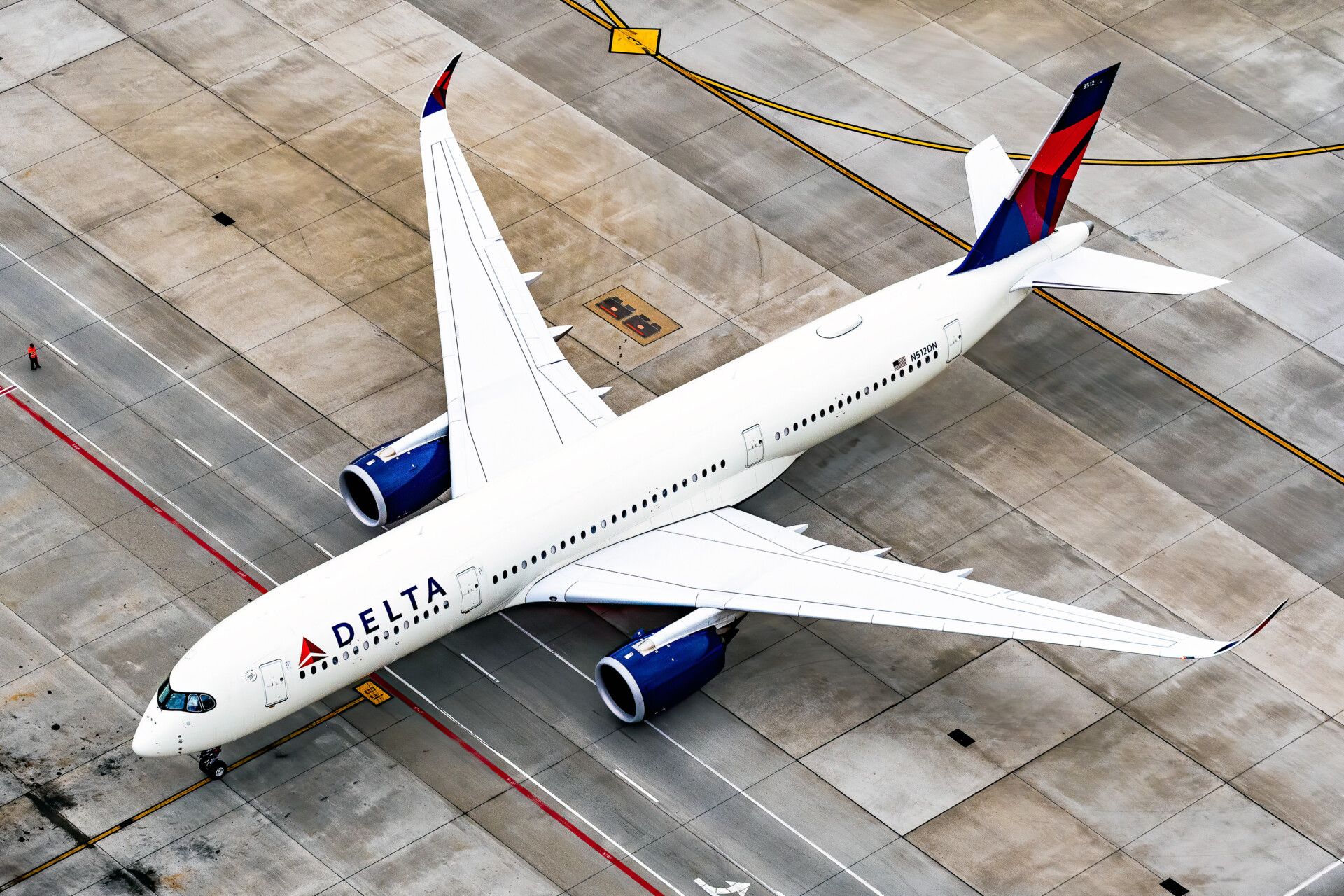Summary
- Biscoff cookies, originally known as Speculoos in Belgium, have been enjoyed since the 17th century and are rooted in Belgian culture and history.
- Delta Airlines introduced Biscoff cookies to the world of inflight snacking in 1986, and now serves an impressive annual quantity of 80 to 85 million cookies.
- Biscoff cookies have become popular among other major airlines due to their delicious taste, long shelf life, no preparation required, and their suitability for a wide range of dietary preferences and restrictions.
If you've ever flown on a major legacy carrier in the US, chances are you've encountered Biscoff cookies as an in-flight snack. These small, rectangular cookies with a caramelized crunch have become one of the most common in-flight-service snacks in the skies. How did a simple Belgian snack manage to earn its place as an iconic inflight indulgence? Let's dive into the story behind the popularity of Biscoff cookies in the skies.
A taste of tradition
The Biscoff cookie, originally known as Speculoos in Belgium, is rooted in Belgian culture and history. These cookies have been enjoyed since the 17th century, often given to children as a sweet treat during Sinterklaas, or St. Nicholas Day. Made from a blend of flour, candy syrup, and cinnamon, Speculoos cookies are known for their distinct flavor and texture. However, it wasn't until the mid-1980s that these cookies found their way onto the trays of airline passengers.
Introduction by Delta
Delta Airlines takes the credit for introducing Biscoff cookies to the world of inflight snacking in 1986. While journeying through Europe, Michael McGuire, a food broker based in the United States, developed an affection for the cookie. Upon his return to the United States, he introduced it to Delta, resulting in the airline now serving an impressive annual quantity of 80 to 85 million Biscoff cookies.
The idea was that their compact size, assertive texture, and distinct sweetness would make them a perfect choice for high-altitude consumption, where our senses of smell and taste can be diminished. Biscoff cookies also have a long shelf life and require no preparation in-flight, making them a simple choice from an operational perspective.
Biscoff cookies also tend to pair well with coffee, one of the most popular beverages consumed during flights. The name "Biscoff" itself is a blend of "biscuit" and "coffee.” This coffee-friendly characteristic allowed Delta to brand the cookies as their own, stamping them with the Delta logo and making them a recognizable symbol of the airline.
Beyond branding, Delta has made Biscoff cookies part of the Delta experience. The airline offers larger sized cookies than can be normally purchased in stores, and flight attendants have been known to fashion crowns out of Biscoff packages for passengers whose birthday it is. Customers can even earn SkyMiles by purchasing Biscoff cookies online.
Get the latest aviation news straight to your inbox: Sign up for our newsletters today.
Adoption by other airlines
Biscoff's popularity has transcended its affiliation with Delta Airlines, however. Other major carriers like United, American Airlines, WestJet, Alaska Airlines, and Sunwing have recognized the allure of Biscoff cookies and added them to their inflight services. Following the resumption of in-flight snacks by American Airlines during the pandemic, Biscoff cookies were among the most celebrated returns. Part of their broad appeal also lies in the fact that Biscoff cookies are made with non-GMO ingredients, contain no artificial flavors or colors, and are vegan and nut-free. This makes them suitable for a wide range of dietary preferences and restrictions.
The journey of Biscoff cookies from a small bakery in Belgium to the trays of major American air carriers is a testament to their simplicity and suitability as a snack for air travel.
Sources: Travel and Leisure, CNN



